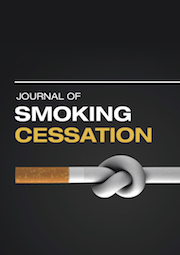Article contents
Efficacy of a sleep health intervention to optimize standard smoking cessation treatment response: results from a pilot randomized controlled trial
Published online by Cambridge University Press: 05 March 2020
Abstract
We tested if an adjunctive sleep health (SH) intervention improved smoking cessation treatment response by increasing quit rates. We also examined if baseline sleep, and improvements in sleep in the first weeks of quitting, were associated with quitting at the end of treatment.
Treatment-seeking smokers (N = 29) aged 21–65 years were randomized to a SH intervention (n = 16), or general health (GH) control (n = 13) condition. Participants received six counseling sessions across 15-weeks: SH received smoking cessation + SH counseling; GH received smoking cessation + GH counseling. Counseling began 4-weeks before the target quit date (TQD), and varenicline treatment began 1-week prior to TQD. Smoking status and SH were assessed at baseline (week 1), TQD (week 4), 3 weeks after cessation (week 7), week 12, and at the end of treatment (EOT; week 15).
SH versus GH participants had higher Carbon Monoxide (CO) -verified, 7-day point prevalence abstinence at EOT (69% vs. 54%, respectively; adjusted odds ratio (aOR) = 2.10, 95% confidence interval (CI) = 0.40–10.69, P = 0.77). Higher baseline sleep efficiency (aOR = 1.42, 95% CI = 1.03–1.96, P = 0.03), predicted higher EOT cessation. Models were adjusted for age, sex, education, and baseline nicotine dependence.
Improving SH in treatment-seeking smokers prior to cessation warrants further examination as a viable strategy to promote cessation.
- Type
- Brief Report
- Information
- Copyright
- Copyright © The Author(s), 2020. Published by Cambridge University Press
References
- 4
- Cited by


